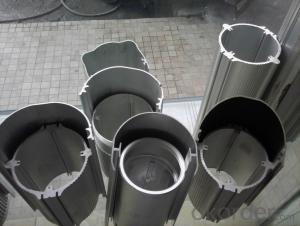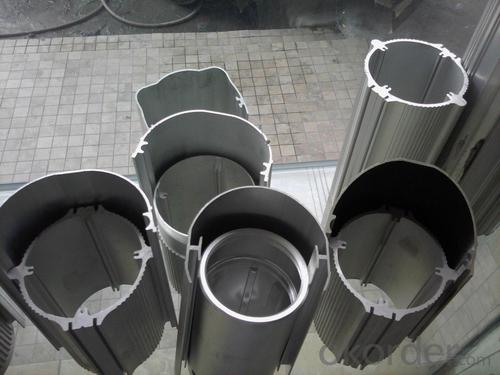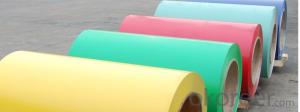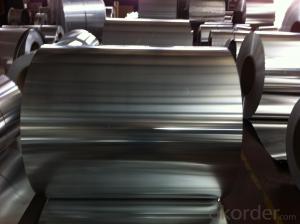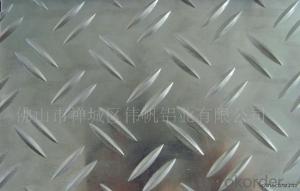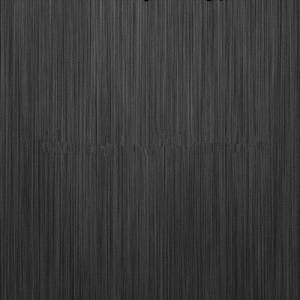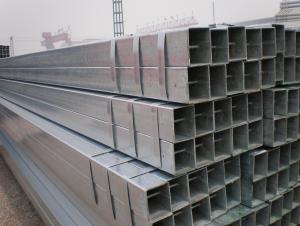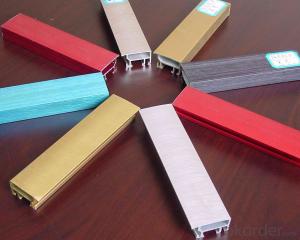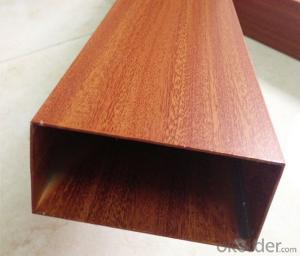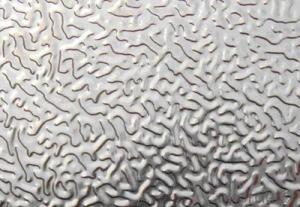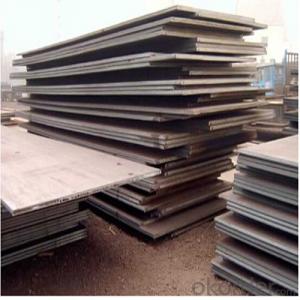Aluminum Sheets in Michigan - Aluminium Profile Industrial for Doors and Windows
- Loading Port:
- Shanghai
- Payment Terms:
- TT OR LC
- Min Order Qty:
- 20 m.t.
- Supply Capability:
- 2000 m.t./month
OKorder Service Pledge
OKorder Financial Service
You Might Also Like
1.Structure of Aluminium profile Industrial for Doors and Windows Description:
Anodizing (also spelled anodising, particularly in the UK and Australia) is an electrolytic passivation process used to increase the thickness of the natural oxide layer on the surface of metal parts. Anodized aluminium surfaces, for example, are harder than aluminium but have low to moderate wear resistance that can be improved with increasing thickness or by applying suitable sealing substances.
2.Main Features of the Aluminium profile Industrial for Doors and Windows:
High corrosion-resistance;
weather-resistance;
heat-resistance;
alkali-resistance and impact-resistance properties.
3.Aluminium profile Industrial for Doors and Windows Images:
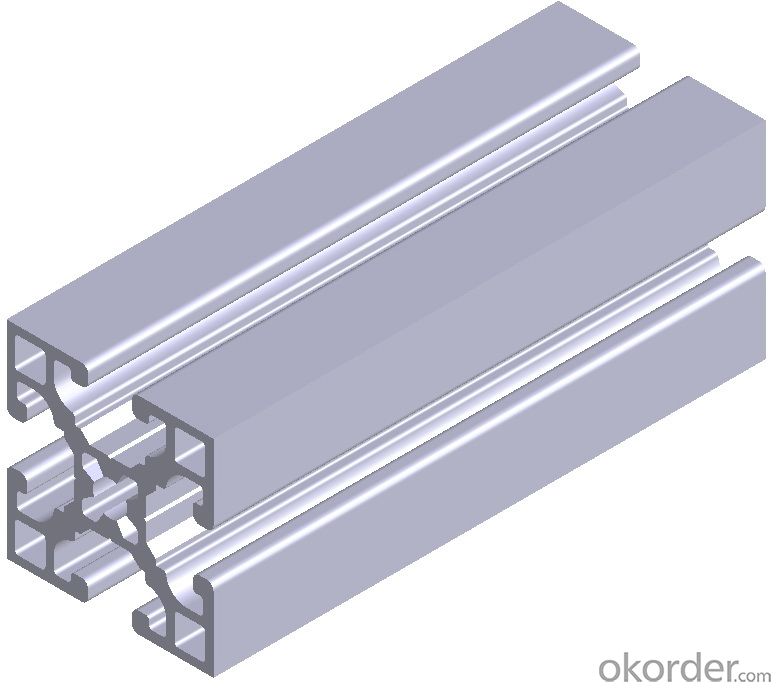
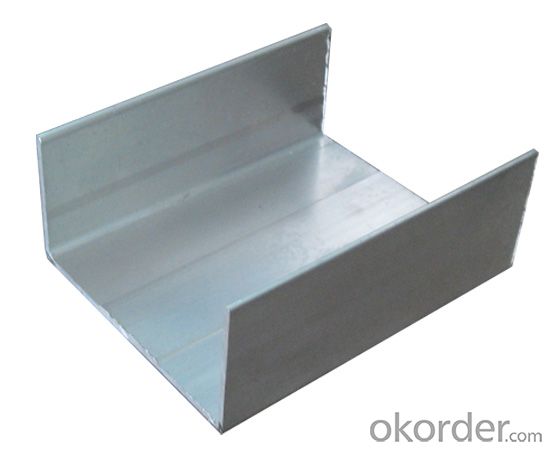
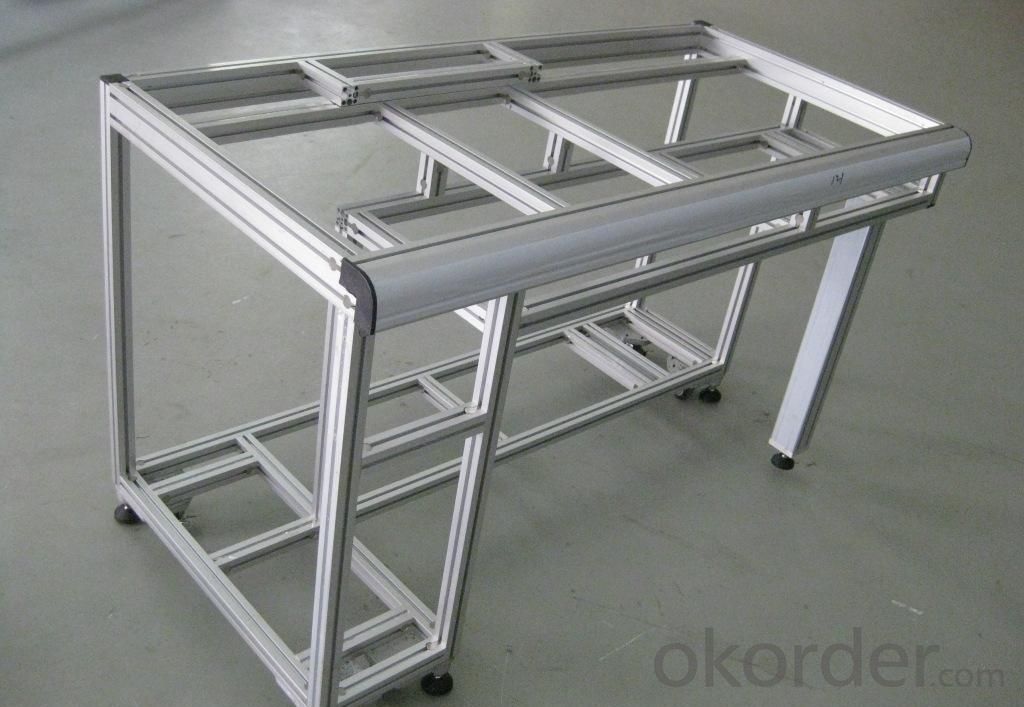
4.Aluminium profile Industrial for Doors and Windows Specification:
1. Material: 6063,6061,6060,6005,6005A,etc.
2. Temper: T5 or T6
3. Finish: Mill finish, anodizing, powder coating, electrophoresis, wooden transfer or pvdf/carbon-flouride coated, polishing, brushing, sand blasting
4. Various colors: Silver, bronze, black, gold, blue, grey, champagne, bright, etc.
5. Machining: Cutting, punching, drilling, tapping, milling, bending, welding, CNC etc.
5.FAQ:
①How about your company?
A world class manufacturer & supplier of castings forging in carbon steel and alloy steel,is one of the large-scale professional investment casting production bases in China, consisting of both casting foundry forging and machining factory. Annually more than 8000 tons Precision casting and forging parts are exported to markets in Europe, America and Japan. OEM casting and forging service available according to customer’s requirements.
②How to guarantee the quality of the products?
We have established the international advanced quality management system,every link from raw material to final product we have strict quality test;We resolutely put an end to unqualified products flowing into the market. At the same time, we will provide necessary follow-up service assurance.
- Q: Are aluminum sheets suitable for HVAC ductwork?
- Yes, aluminum sheets are suitable for HVAC ductwork. Aluminum is a lightweight and durable material that is resistant to corrosion, making it an ideal choice for ductwork systems. Additionally, aluminum sheets can be easily shaped and fabricated to meet specific design requirements, making them a popular choice in the HVAC industry.
- Q: Can aluminum sheets be used for heat sinks?
- Indeed, heat sinks can utilize aluminum sheets. Due to its outstanding thermal conductivity, aluminum serves as an ideal substance for efficiently diverting heat away from electronic parts. With the ability to be fashioned into different dimensions and configurations, aluminum sheets can optimize the dispersion of heat. They find widespread employment in computer processors, LED lights, and power electronics, where the preservation of peak performance and the prevention of overheating hinge on effective heat dissipation. Moreover, the lightweight nature and cost-effectiveness of aluminum sheets render them highly favored for heat sink purposes.
- Q: What are the common thicknesses available for aluminum sheets?
- The available thickness options for aluminum sheets vary depending on the specific application and industry requirements. Some commonly found thicknesses for aluminum sheets include 0.025 inches (0.635 mm), 0.032 inches (0.81 mm), 0.040 inches (1.02 mm), 0.050 inches (1.27 mm), 0.063 inches (1.6 mm), 0.080 inches (2.03 mm), 0.090 inches (2.29 mm), 0.125 inches (3.18 mm), 0.190 inches (4.83 mm), and 0.250 inches (6.35 mm). These thicknesses see frequent usage in industries such as construction, automotive, aerospace, and manufacturing. It should be noted, however, that specialized applications may require custom orders or fabrication to meet specific thickness requirements.
- Q: Can the aluminum sheets be used for manufacturing musical instruments?
- Yes, aluminum sheets can be used for manufacturing musical instruments. Aluminum is a lightweight and versatile material that can be shaped and tuned to produce various musical sounds.
- Q: Is it possible to use aluminum sheets for creating roofing tiles?
- <p>Yes, you can use aluminum sheets to make roofing tiles. Aluminum is a popular material for roofing due to its durability, lightweight, and resistance to corrosion. It can be shaped into various styles and sizes to mimic traditional roofing materials like clay or slate. Aluminum roofing tiles are also known for their energy efficiency, as they reflect heat and can help reduce cooling costs. However, it's important to ensure that the aluminum sheets are of good quality and installed correctly to achieve the desired performance and longevity.</p>
- Q: This question asks for the various types of adhesives that can be used for bonding aluminum profiles when constructing exterior cladding.
- <p>For bonding aluminum profiles in exterior cladding, several types of adhesives are commonly used. These include: 1. Structural adhesives, which provide strong and durable bonds suitable for load-bearing applications. 2. Silicone sealants, known for their flexibility and resistance to weathering, making them ideal for sealing gaps and joints. 3. Acrylic adhesives, which offer good adhesion and flexibility, and are often used for bonding aluminum to other materials. 4. Epoxy adhesives, known for their high strength and resistance to chemicals, making them suitable for demanding environments. 5. Polyurethane adhesives, which provide strong bonds and excellent resistance to moisture and temperature changes. The choice of adhesive depends on factors such as the specific application, environmental conditions, and required performance characteristics.</p>
- Q: What are the different surface treatments available for aluminum sheets?
- There are several different surface treatments available for aluminum sheets, each with its own unique properties and benefits. Some of the most common surface treatments for aluminum sheets include anodizing, painting, powder coating, and laminating. Anodizing is a popular surface treatment method that involves immersing the aluminum sheet in an electrolyte solution and passing an electric current through it. This creates an oxide layer on the surface of the aluminum, which enhances its corrosion resistance, improves durability, and can also provide decorative finishes in a variety of colors. Painting is another common surface treatment option for aluminum sheets. It involves applying a layer of paint onto the surface of the sheet, which not only enhances its aesthetics but also provides protection against corrosion and environmental elements. Painting allows for a wide range of colors and finishes, making it a versatile option for various applications. Powder coating is a technique where a dry powder is electrostatically applied to the aluminum sheet and then cured under heat, creating a durable and attractive finish. Powder coating offers excellent resistance to weathering, chemicals, and UV rays, making it suitable for outdoor applications. It also provides a wide range of color options and can be applied to achieve various textures and finishes. Laminating is a surface treatment process that involves bonding a thin layer of a different material, such as plastic or wood, onto the aluminum sheet. This not only enhances the aesthetics but also provides additional properties like scratch resistance, increased strength, and insulation. Laminating can offer a wide variety of finishes and textures, allowing for customization and versatility in design. These are just a few examples of the various surface treatments available for aluminum sheets. The choice of treatment depends on the specific requirements of the application, desired aesthetics, durability, and environmental factors. Consulting with a professional or supplier can help determine the most suitable surface treatment option for a specific project or application.
- Q: What specific conditions are necessary for the storage and transportation of aluminum sheets to ensure their quality and safety?
- <p>Yes, there are special requirements for storing and transporting aluminum sheets. Aluminum sheets should be stored in a dry, cool place to prevent moisture and temperature extremes which can cause warping or corrosion. They should be stacked flat and evenly to avoid bending or denting. When transporting, aluminum sheets should be secured to prevent shifting during transit, which can lead to damage. Protective coverings may be used to shield the sheets from dirt, scratches, or other potential hazards. It's also crucial to handle the sheets carefully to avoid bending or denting, which can occur if they are not properly supported during transport.</p>
- Q: What are some common applications of aluminum sheets?
- Aluminum sheets have a wide range of applications due to their unique properties. Some common applications of aluminum sheets include: 1. Construction: Aluminum sheets are commonly used in the construction industry for roofing, siding, and window frames. Their lightweight nature and durability make them an ideal choice for these applications. 2. Automotive industry: Aluminum sheets are extensively used in the automotive industry to manufacture car bodies, panels, and components. The lightweight nature of aluminum helps reduce the overall weight of vehicles, leading to improved fuel efficiency. 3. Packaging: Aluminum sheets are commonly used for packaging purposes, especially in the food and beverage industry. They are used to make cans, foils, and lids, thanks to their ability to preserve the freshness and quality of the packaged products. 4. Aerospace industry: Aluminum sheets play a vital role in the aerospace industry. They are used to manufacture aircraft bodies, wings, and structural components due to their high strength-to-weight ratio, corrosion resistance, and ability to withstand extreme temperatures. 5. Electrical industry: Aluminum sheets are used in the electrical industry for various applications, including manufacturing electrical enclosures, transformers, and bus bars. Aluminum's excellent conductivity and lightweight nature make it a preferred choice for these applications. 6. Marine industry: Aluminum sheets are widely used in the marine industry for building boats, ship hulls, and other marine structures. Aluminum's resistance to corrosion and its ability to withstand harsh marine environments make it a suitable material for these applications. 7. Decorative purposes: Aluminum sheets are frequently used for decorative purposes in architecture and interior design. They can be shaped, engraved, or coated with different finishes to create aesthetically pleasing surfaces for walls, ceilings, furniture, and signage. These are just a few examples of the common applications of aluminum sheets. The versatility, durability, and lightweight nature of aluminum make it a highly sought-after material in various industries.
- Q: What unique cleaning techniques should be employed when cleaning aluminum sheets?
- <p>Yes, there are special cleaning methods for aluminum sheets. It's important to use a gentle, non-abrasive cleaner to avoid scratching the surface. Avoid using harsh chemicals or abrasive materials that can damage the aluminum. Instead, use a soft cloth or sponge with a mild detergent solution. Rinse thoroughly with water to remove any cleaning residue, as some detergents can leave a film on the aluminum. Dry the aluminum sheet immediately after rinsing to prevent water spots. Regular cleaning can help maintain the appearance and longevity of aluminum sheets.</p>
Send your message to us
Aluminum Sheets in Michigan - Aluminium Profile Industrial for Doors and Windows
- Loading Port:
- Shanghai
- Payment Terms:
- TT OR LC
- Min Order Qty:
- 20 m.t.
- Supply Capability:
- 2000 m.t./month
OKorder Service Pledge
OKorder Financial Service
Similar products
Hot products
Hot Searches
Related keywords
